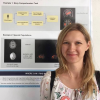
Let’s Break Down Echo Chambers
The importance of different perspectives in science and in life
“Luckily, we live in a blue, blue state. I mean, if you don’t like living in a blue state… well, too bad.”
I shivered. I was at a mandatory ethics training session held here, at MIT. We had just finished talking about inclusion and acceptance. And yet our instructor demonstrated the very opposite of the attitude she had been promoting. What is worse, she did it without even realizing she could be offending someone. Blue states are the “good” states – aren’t they?
My first month at MIT had truly been a honeymoon period. I was excited to spend my graduate years in a city where scientists made new discoveries on a daily basis. I hopped from one guest talk to another, fascinated that I could witness the frontiers of neuroscience expand in real time. My classmates were happy to talk about philosophy of science at lunch. A student from Harvard got my number by promising to send me an article about mind and meaning. In short, I felt like I belonged.
However, halfway through the semester, a suspicion started to creep in. While people would engage in rigorous debates about their research, few seemed to question their own stance on non-scientific issues. At first glance, it seemed that everyone was a Democrat, everyone was an atheist, everyone put science as their main priority in life. And for me, this environment of conformity seemed stifling rather than reassuring.
I spent my undergraduate years in Florida, a swing state. As an international student – a foreigner – I had a unique opportunity to learn about various “American” viewpoints with few, if any, preconceptions. I could have conversations with both Bernie and Trump supporters (although the latter were already hard to find). But more importantly, as part of a debate club, I was exposed to a variety of political and economic arguments and had to evaluate the merits and drawbacks of every single one of them. Sure, advocating immediate marijuana legalization across the entire country seemed somewhat radical – and certainly unacceptable for most people in my home country – but I learned a lot about tensions in the current legal framework, as well as about the shortage of proper research on marijuana effects due to the lack of funding. Debate has taught me that the best way to test a new idea entails putting it out there and attempting to defend it against rigorous criticism.
Although I no longer compete, my debate training often helps me in my graduate life. When it comes to science, nothing can be taken for granted. A single study can overturn long-standing assumptions. A theory can be elegant, but it only gains value after extensive testing. Criticism, therefore, is at the heart of scientific progress. And since I am used to tearing arguments apart, finding a weak point in a paper becomes almost trivial.
Like true scientists, most members of the MIT community constantly practice their critical thinking skills – at least at the workplace. Nevertheless, dissenting voices often die down when the conversation turns to politics. My inner debater finds this trend very upsetting. I strongly believe that the lack of debate around political and social issues prevents us from honestly evaluating our views. If we accept that the blue state is “good” by default, we will fail to appreciate the complexity of most issues at hand. Even opinion-based questions like abortion or gay marriage can be evaluated, broken down into parts, and compared with social norms in other parts of the world.
Another reason why the debater in me constantly tries to engage in an argument is simply better dialogue. When the Boston community criticizes the tax law, without anyone – ever – bringing forth a single argument in its favor, we create an ideological divide between ourselves and half of the country. When a friend at a party asks “Why would anyone deny climate change?”, and no one in the room can provide a good answer, we as scientists lose the ability to communicate our findings to the broader public. We won’t understand why our opponents disagree with us unless we step in their shoes and try to advocate on their behalf.
Science is a wonderful arena for practicing logic and critical thinking, but I want more. I believe in climate change and the power of scientific evidence but I want people to explain to me why someone would not. My ex-boyfriend and I broke up because I could not accept his religion (or any religion, for that matter), but I still want religious members of my department to share how their quest to understand the brain interacts with their faith. No matter how comfortable it is to be surrounded by people who share my beliefs, I strive to avoid echo chambers. I will search for dissenting views or, if needed, will try to represent them myself. If you think you could bring a fresh perspective to the MIT community, I will personally welcome you here, even if you fight me on every issue. I want to hear it.
Share this post:
